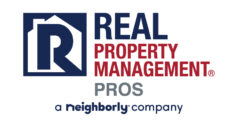You’ve decided 2015 will be your year: the year to see new places, the year to read more books, the year to exercise and eat right, and the year you’ll become a landlord for the first time. It’s a big, exciting decision. For months, you’ve asked yourself the same question, “Do I rent out that townhouse in Alexandria, or do I sell it?” For months, you’ve weighed the pros and cons of renting or selling, selling or renting, and finally you’ve decided that renting is the answer.
Congratulations! Your job as a landlord will be one of the most rewarding (albeit demanding) jobs you’ll ever take on. You’ll be tasked with many responsibilities, and you’ll be faced with making many decisions that will not only affect your life, but the lives of your tenants as well — the first, and most important of which will be choosing the right rent for your property.
In a perfect world, this decision would be easy. You might think, “I’ll charge an amount that will cover my mortgage payment, with some left over.” But it’s not a perfect world, and it’s not that easy. The real estate market in Alexandria is more competitive than ever, and your potential tenants have all the power. If you charge too much, no one will want to rent from you, but if you charge too little, you’ll end up with no profit at all.
So, what do you do?
How do you know what is too much, or too little, and what is just right?
- Know what other landlords in your neighborhood are charging for comparable rental properties. Check Zillow, and Trulia. A two-bedroom, two-bathroom townhouse on South Union Street in Old Town Alexandria goes for $3200 a month. Start there.
- Location, location, location. Renters will pay a premium for a scenic view of the Potomac River, or to be within walking distance of Old Town Montessori School.
- Network with your neighbors, and talk with them about the rental market. Such conversations will not only help you decide how much to charge for your property, but their real-world experience will help manage your expectations as you venture into life as a landlord.
- Set your price. Take into account all of the information you’ve gathered, and figure in slight increases for any special features: Upgraded appliances, a two-car garage, lawn services, furniture, et cetera.
- Adjust your price as necessitated by the market. If your rental listing gets few calls, consider lowering the prices. Conversely, if you get lots of interest, increase the rent, and screen your tenants wisely.
